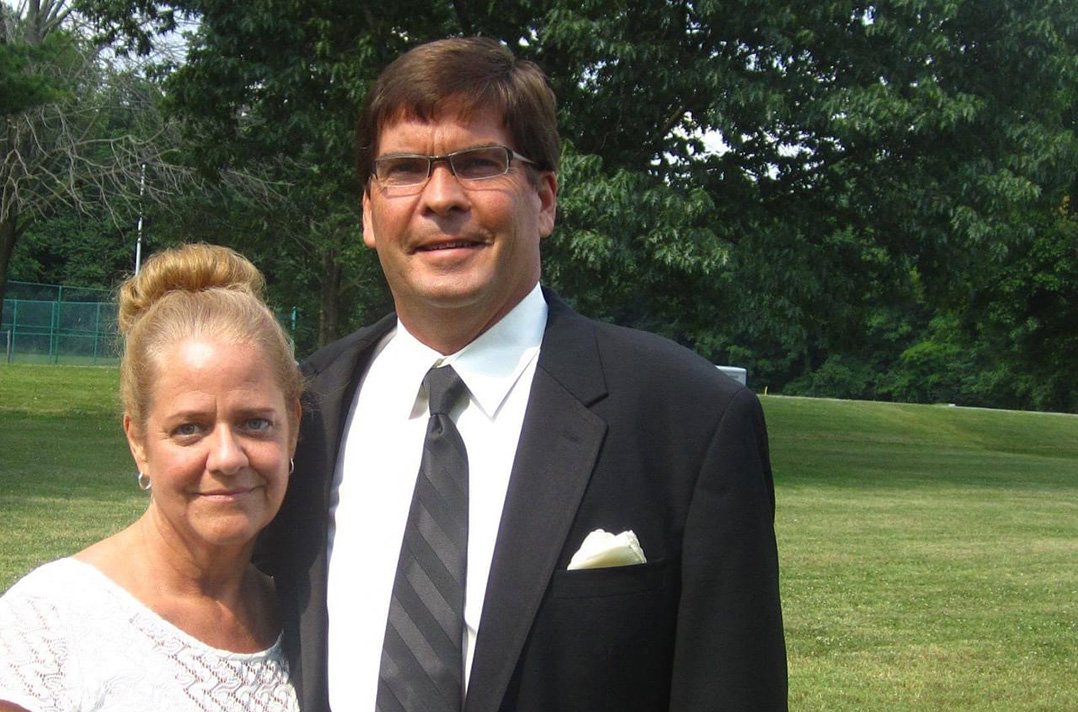A Carmel basketball coach ignored his body’s warning signs. Feeling blessed that he survived a life-threatening health scare, he is urging others not to make the same mistake.
Walt Morris, 63, a boys varsity assistant basketball coach for Carmel High School, had kept himself in good shape and would go walking and running most days. But in early 2022, he began experiencing pain in his jaw that he dismissed as a tooth issue. Later, he felt pain radiating in his neck and had trouble swallowing. But he told no one.
“You just rationalize stuff,” said Morris, a Noblesville resident.
About 9:30 a.m. July 25, 2022, Morris was jogging when pain shot through his jaw, knocking him to the ground. He walked about a quarter mile to home, where his wife, Lisa, not normally home during the day, recognized he was having a heart issue. She took him to the emergency room of Riverview Hospital in Noblesville.
The next morning, electrocardiogram testing indicated he had an aortic dissection, a tear in the inner lining of the heart’s aortic valve. Doctors told him he might have 30 minutes to live and was rushed to Ascension St. Vincent Heart Center in Carmel, where he underwent 11 hours of surgery that saved his life.
Morris, a part of four IHSAA boys basketball state championships (two at North Central High School and two at Carmel), wants to use the episode to help others by spreading the word about the importance of telling doctors about their family heart history and not ignoring symptoms. To do so, he has recorded an 83-second video that is on the Carmel basketball team’s social media accounts. Posted July 26, the video has nearly 20,000 views on Twitter.
“I want to let everyone know what I wasn’t doing right, the stuff I was ignoring,” Morris said.
A healthy heart has a tricuspid aortic valve with three small flaps called leaflets that keep blood flowing through the valve. Dr. Felix Alva, a cardiologist with Ascension Medical Group St. Vincent Hamilton Heart Care in Noblesville, explained that a bicuspid aortic valve has just two such leaflets. The bicuspid aortic valve is a genetic anomaly, and the condition can cause the valve to become enlarged and weak. A dissection is when the inner layer of the aorta tears, compromising the heart’s ability to pump enough blood.
A CT scan and electrocardiogram can indicate an enlarged aorta, though patients aren’t usually tested unless they have a family history of heart issues or are in a situation like Morris was. Alva said it is important for a patient to inform their family doctor of heart issues in their family and to not ignore symptoms that can include sudden or persisting pain, shortness of breath and rapid pulse.
“Any kind of chest pain always needs to be evaluated,” said Alva, Morris’ cardiologist.
Morris didn’t know that his heart had a bicuspid valve until he was tested. His late father, Ed Morris, survived an aneurysm when he was 69. Walt Morris and his sister, Patricia Butcher of Arcadia, were born with bicuspid aortic valves that were passed along genetically from their father.
Walt Morris, who retired from teaching three years ago, said he thought of himself as a grateful person. Now he appreciates life even more.
“This makes every day more of a gift to me than I really realized,” he said. “I’m trying to be a better person, trying to be better at helping more people.”





